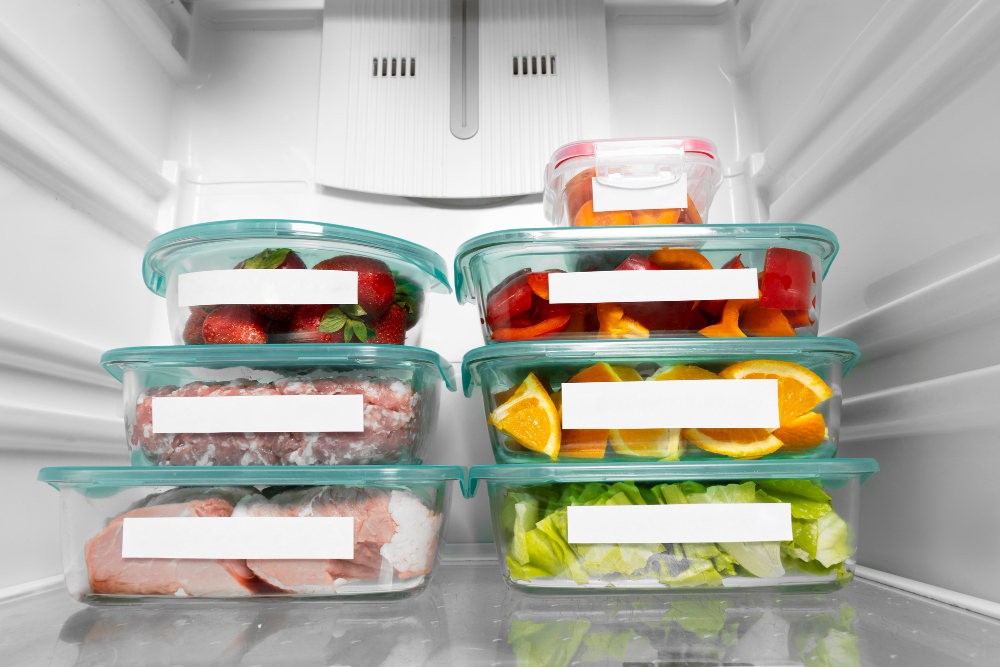We may have taken every precaution in our daily lives to prevent food poisoning. We separate cutting boards for raw and cooked foods, scrub every grape, disinfect just about…everything. But does it suffice? Or could we still have overlooked important details that may land us in a nasty stomachache? Assess your risk factors with the following information gathered by US News.
Not Washing Your Shopping Bags
Are you one of the reusable grocery bags owners who utilises the bags till they have a gaping hole at the bottom before you conveniently toss them into the trash can? These reusable bags may be durable and environmentally-friendly, but not always good for you. According to the Academy of Nutrition and Dietetics, only five in six users do not clean their reusable shopping bags regularly. As a result, the handy totes turn into a breeding ground for germs. The raw meat juice that remained in the bag from the week before may contaminate your fresh apples and bread.
Well, there is a simple solution – clean your reusable grocery bags regularly. Do not just do a slip-shod work though. Wash them in the washing machine or hand-wash them with hot, soapy water. Do also take the effort to put the different categories of your groceries in separate bags for better hygiene purposes. When the bags are not in use, keep them in a clean, dry environment for better maintenance.
Storing Groceries in the Car
Keeping food at the correct temperature is crucial in maintaining the freshness. Most people understand this logic but do not take enough effort to ensure their groceries are in the right temperature, especially when they are in transit. The time you take to transport the groceries back to the fridge at home from the supermarket too matters. It is important to not take your own sweet time heading home when you have bags of assorted groceries in the trunk of your car. If it is not possible to head straight home from the store, bring along insulated bags for meat and dairy products to prevent spoiling.
Having a Fridge that has Lost its Cool
How many of you actually check how cold your refrigerator is? The shelf life of the groceries in that cool box can only be prolonged if it is cool enough. The recommendation given by the Academy of Nutrition and Dietetics states that one should ensure the fridge is running at or below 4°C, and freezer below -18°C. Other fridge-safety tips include keeping a thermometer on the middle shelf, storing food in their original containers, and keeping the expiration date labels on the food packaging for easy reference.
Cleaning Table Tops with a Sponge or Rag
The point of wiping down your countertops is to eliminate bacteria, not spread germs around. That being said, the last thing you want to use is a damp sponge or kitchen rag. Unless the sponge is fresh out of the wrapper, you’re most likely making the situation worse. You’re better off using paper towels and a kitchen-safe cleaning solution. However, if you are a tree-hugger and do not want to overuse paper products, sanitise your sponges by washing them in the dishwasher or by moistening them and microwaving them for 30 seconds before use.
Skipping the Soap
How many of you are guilty of this; gulped down a glass of water, and since it’s just water, you casually rinse your glass, skipping the soaping process? How about using the scissors to cut open a pack of frozen chicken franks, and just rinsing the scissors with tap water afterward? Let’s face it; we have all done it before. Somehow in our minds, we judge how dirty a kitchen tool or utensil is by the duration we used it for. Alas, the truth is, anything coming in contact with your mouth or with raw meat carries bacteria (no matter how long) should ideally be washed in hot, soapy water for best hygiene practices.
Abusing Antacids
Many of us probably have eaten antacids and some more frequently than others. This heartburn and acid reflux medication may be a godsend to a lot of people as a quick pain reliever, but it puts one at a higher risk for contracting food poisoning. Our bodies actually possess a range of natural defenses against food-borne ailments and the stomach acid serves an important role to eliminate ingested bugs like salmonella, says the Mayo Clinic. As antacids lower your stomach’s acidity, they inadvertently allow these bugs creep into your intestines and create havoc. Hence, to retain the acidity of your stomach, use antacids as sparingly as possible.


